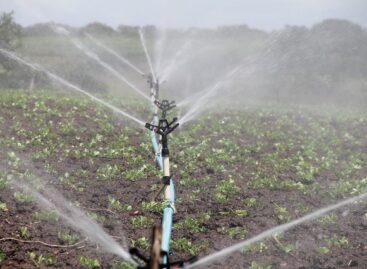MATE researchers contributed to the development of antibiotic-free foie gras production
Researchers from the Hungarian University of Agricultural and Life Sciences (MATE) collaborated in the development of the breeding and husbandry technology for antibiotic-free, premium goose liver production. The research carried out in the consortium was established in cooperation with Integral Zrt. and the National Biodiversity and Gene Conservation Center – the university told MTI on Tuesday.
 It was announced that for the investment with a total budget of nearly 1.4 billion forints, the consortium won a non-refundable grant of over 831 million forints within the framework of the Economic Development and Innovation Operational Program Plus, the source of which is provided by the European Regional Development Fund and the budget of Hungary in co-financing.
It was announced that for the investment with a total budget of nearly 1.4 billion forints, the consortium won a non-refundable grant of over 831 million forints within the framework of the Economic Development and Innovation Operational Program Plus, the source of which is provided by the European Regional Development Fund and the budget of Hungary in co-financing.
According to the announcement, optimal environmental conditions will be created during the development. Their objectives include lighting, stocking density, sex ratio in breeding flocks, feeding and housing technology to achieve a housing and feeding technology operating at an elevated animal welfare level for both breeding animals and end products.
The practical application of the technologies to be developed will mean significant savings for the fattening goose sector, significantly improving its competitiveness.
Related news
Balázs Hankó: MATE is already among the world’s top 100 agricultural universities
🎧 Hallgasd a cikket: Lejátszás Szünet Folytatás Leállítás Nyelv: Auto…
Read more >State Secretary of the Ministry of Agriculture: the Ministry of Agriculture plans to publish several new tenders this year
🎧 Hallgasd a cikket: Lejátszás Szünet Folytatás Leállítás Nyelv: Auto…
Read more >Related news
Lidl guarantees fairer prices for cocoa farmers
🎧 Hallgasd a cikket: Lejátszás Szünet Folytatás Leállítás Nyelv: Auto…
Read more >









